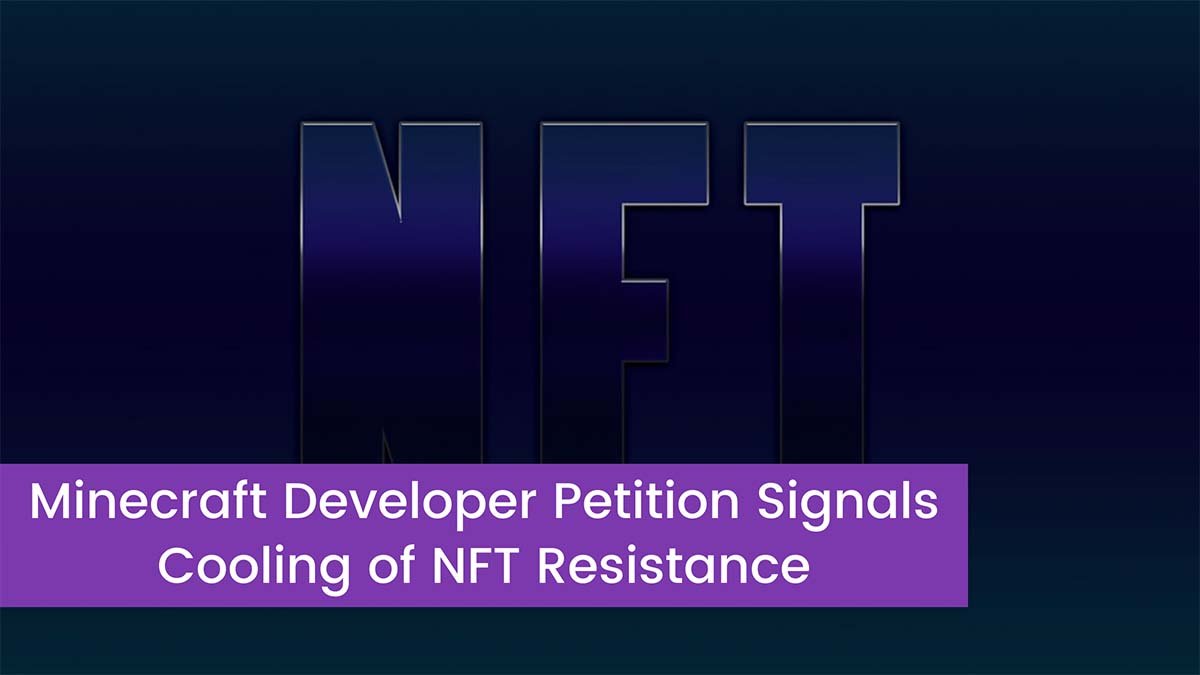Every time technology makes an advance, there is resistance. As far back as the Luddites from the 18th century, people have rebelled against a developing world.
For every fan of streaming music, there’s a lover of vinyl telling them how bad their choices are. DVDs still sell by the bucketload, and Kindle readers are often told there’s nothing quite like cracking the spine of a real book. Resistance is typical but ultimately futile.
When technology moves forward, nobody can stop it, and eventually, people embrace it. Twenty years ago, many people wouldn’t have a mobile device, but today Statista reveals there are 15bn handsets in use worldwide; that’s two for every person on the planet.
The latest technology to receive criticism are digital assets and NFTs, but it seems developers of Minecraft may be signaling a changing of the mood. Video gaming is the one industry NFTs and digital assets would seem perfect for, but it’s one area where there’s been significant kickback.
Elsewhere in other industries, digital assets have been welcomed. The makers of fan tokens, Socios, have recently sought to expand into the US as their product continues to be warmly received by sports lovers.
A fan token isn’t an NFT, but it is a digital asset purchased using crypto that offers tangible benefits but has no physical form. Major bands, such as Kings of Leon, have released their music in a similar way, and that too was well received.
In gaming, it has been different. Team 17, the makers of Worms, backed down with their plans for Worms-themed NFTs after a backlash from within their company, and many external developers refused to work with them afterward.
Ubisoft and EA Sports have both been criticized for their plans to use NFTs, and that moved a group of developers, including Mojang Studios, to write a pledge around NFTs. It asked other developers to assess the potential danger of NFTs on ecological and psychological levels. It also called out the growing trend toward play-to-earn games, arguing video gaming should be fun, not work.
“By ignoring key risk factors and glaring issues, adopters of NFTs and other forms of digital ownership that embrace these problematic aspects erode efforts to create an equitable and sustainable existence for all,” it said. “NFTs in gaming do not bring any meaningful value to the players.”
However, the movement seems to have hit a brick wall; it had accumulated just 72 signatures after the first week. That seems to indicate that resistance is waning in the industry, and the progress seen in sports and music might be coming to video gaming as well.
“Every single studio I know of—from the largest, top company to the smallest—will have a product, if not many involving blockchain,” said Sebastien Borget, co-founder and COO of The Sandbox.
The trick for developers is to find the middle ground between new technology and not doing irreparable damage to the industry. Using the sports example, fan tokens have been well-received, but general NFTs have not; some football clubs, such as Liverpool, saw their NFT offering flop, whilst players such as John Terry have had similar problems. That proves the market for digital assets is fraught with danger, even if fan tokens prove it can also be a success.
There’s no need for developers to abandon NFTs completely, and like other technological advances show, new ideas can always thrive with the right application. The key is to find the route that doesn’t disrupt the old ideas, mainly that video games are fun and should be playable without the pressure to earn or grind your way through.
The end-user should get something tangible for their efforts and not feel scammed. It seems perhaps the Minecraft developers have signaled the start of that process.




